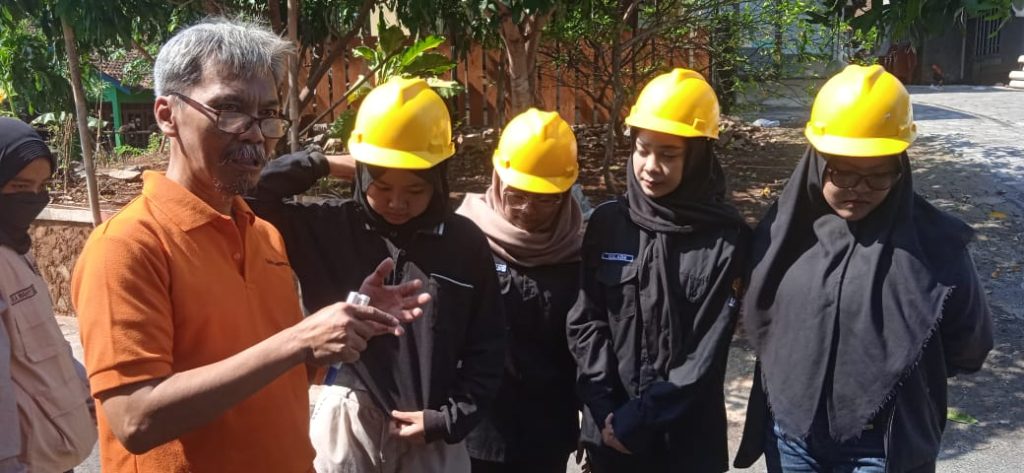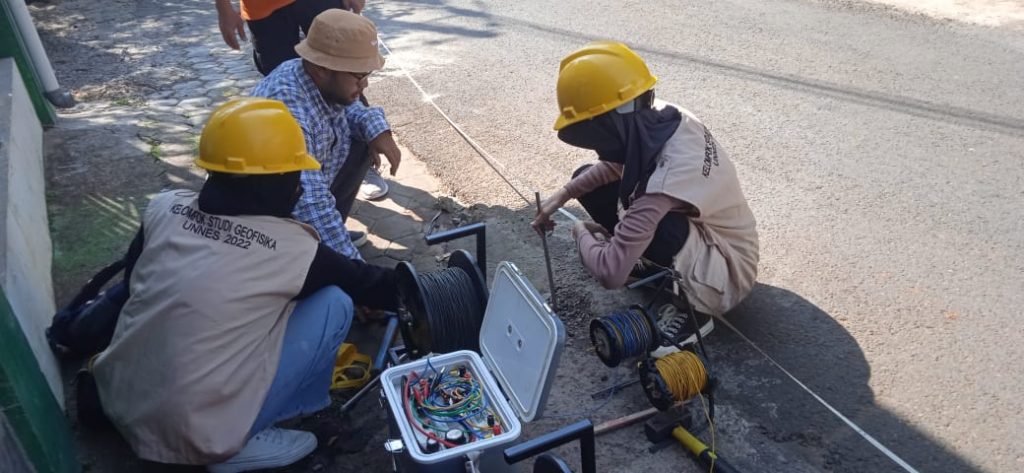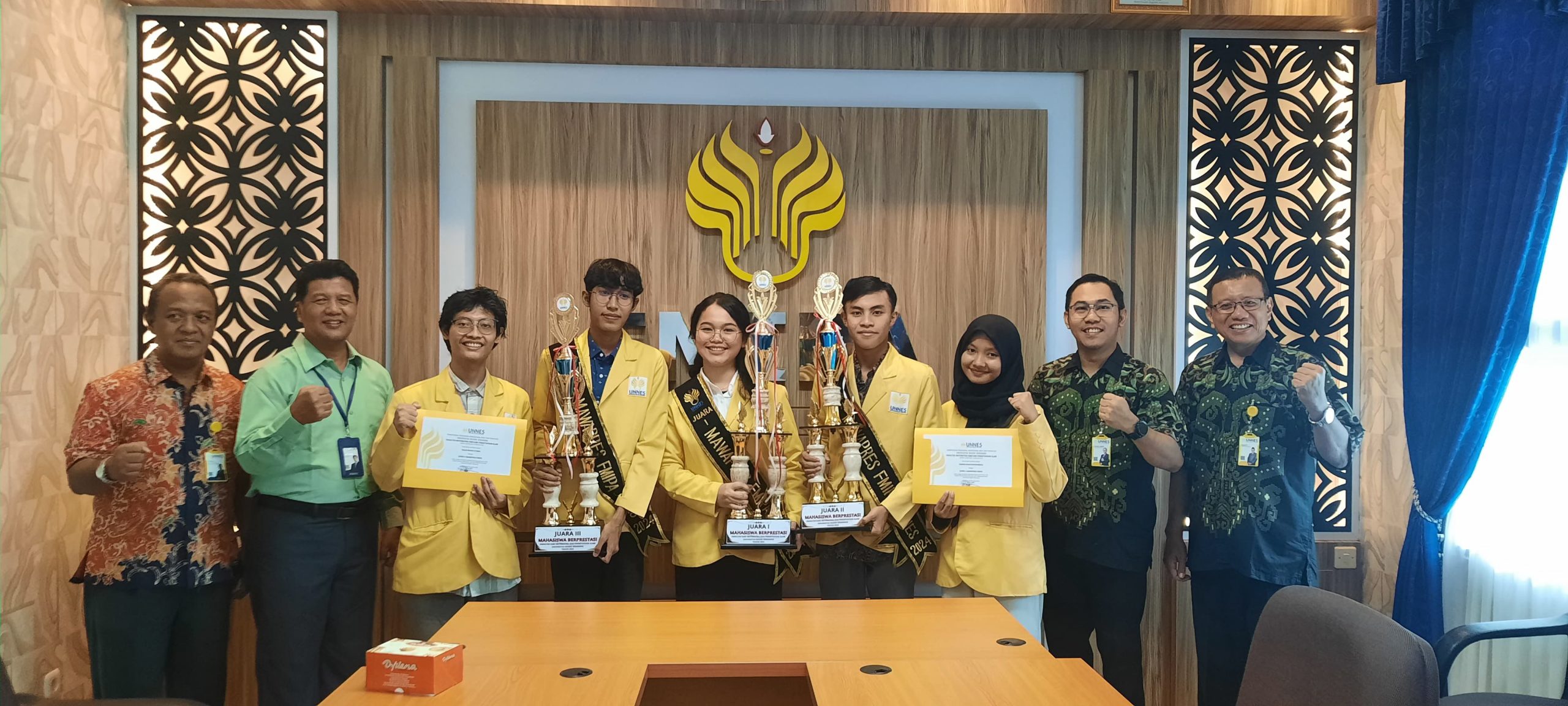The prolonged drought caused by the El-Nino storm in 2023 has resulted in a long drought in several areas in Central Java, especially in Semarang, including the Kalisegoro Sub-district, Gunungpati, Semarang. The area, located 4 km southwest of the Universitas Negeri Semarang (UNNES) Campus, is experiencing partial drought, especially in the Sekar Gading Barat area. One of the efforts made by the residents is digging artesian wells to obtain an aquifer as the water source for these artesian wells.

To ensure this, the village authorities submitted a request to the FMIPA UNNES Physics Study Program to assist in measurements to determine whether there is indeed an adequate water source at the location in the village. Armed with this request, on Sunday, October 15, 2023, a team of researchers from the FMIPA Physics Study Program, led by Dr. M. Aryono Adhi, M.Si., collaborated with researchers from the FMIPA’s partner Physics Study Program and the Central Java ESDM Office to assist residents in conducting geoelectric measurements. Present at this community service activity was the Coordinator of the S1 Physics Study Program, Prof. Dr. Masturi, M.Si., who also assisted in the measurements until completion. The geophysical measurement, facilitated by students from the Physics Study Program taking the Geophysics Methods course, took place for a full half-day. The Chairman of the Artesian Well Association of Sekar Gading Barat Village, Suratman, said that this measurement is essential to provide certainty to the organizers regarding the new well digging. Since the funding for this is collected voluntarily, it is expected that this well digging will obtain a maximum water source. Meanwhile, Dr. M. Aryono Adhi, M.Si., representing the research team from FMIPA UNNES, explained, “Based on the results of these geoelectric measurements, the research team recommends stopping at around 70-80 meters, as sand has been found up to a depth of 70 meters, and after that, it turns into clay soil. Boring should be stopped around 70-80 meters. We must avoid depleting the clay layer, which could seal off the water at a depth of 70 meters,” clarified Dr. M. Aryono Adhi, M.Si., supported by the research team from the Central Java ESDM Office.

Meanwhile, the Coordinator of the Physics Study Program, Prof. Dr. Masturi, M.Si., expressed appreciation to the research team and the students involved. This synergy demonstrates the real role of UNNES Campus in fulfilling the real needs of the community, particularly in terms of clean water supply. Furthermore, according to Prof. Masturi, the involvement of students who are taking the Geophysics Methods course in this activity enriches their understanding of earth physics material directly related to its application in the industrial and community contexts, which is relevant to the Free Learning – Independent Campus program, which is a priority program of the university and the ministry. At the end of the event, the Chairman of the Artesian Well Association of Sekar Gading Barat, Suratman, expressed his profound gratitude for the assistance provided by the research team of the FMIPA UNNES Physics Study Program and the Central Java ESDM Office. This collaboration is expected to be implemented in other activities as a manifestation of UNNES Campus’s concern for the surrounding community.




